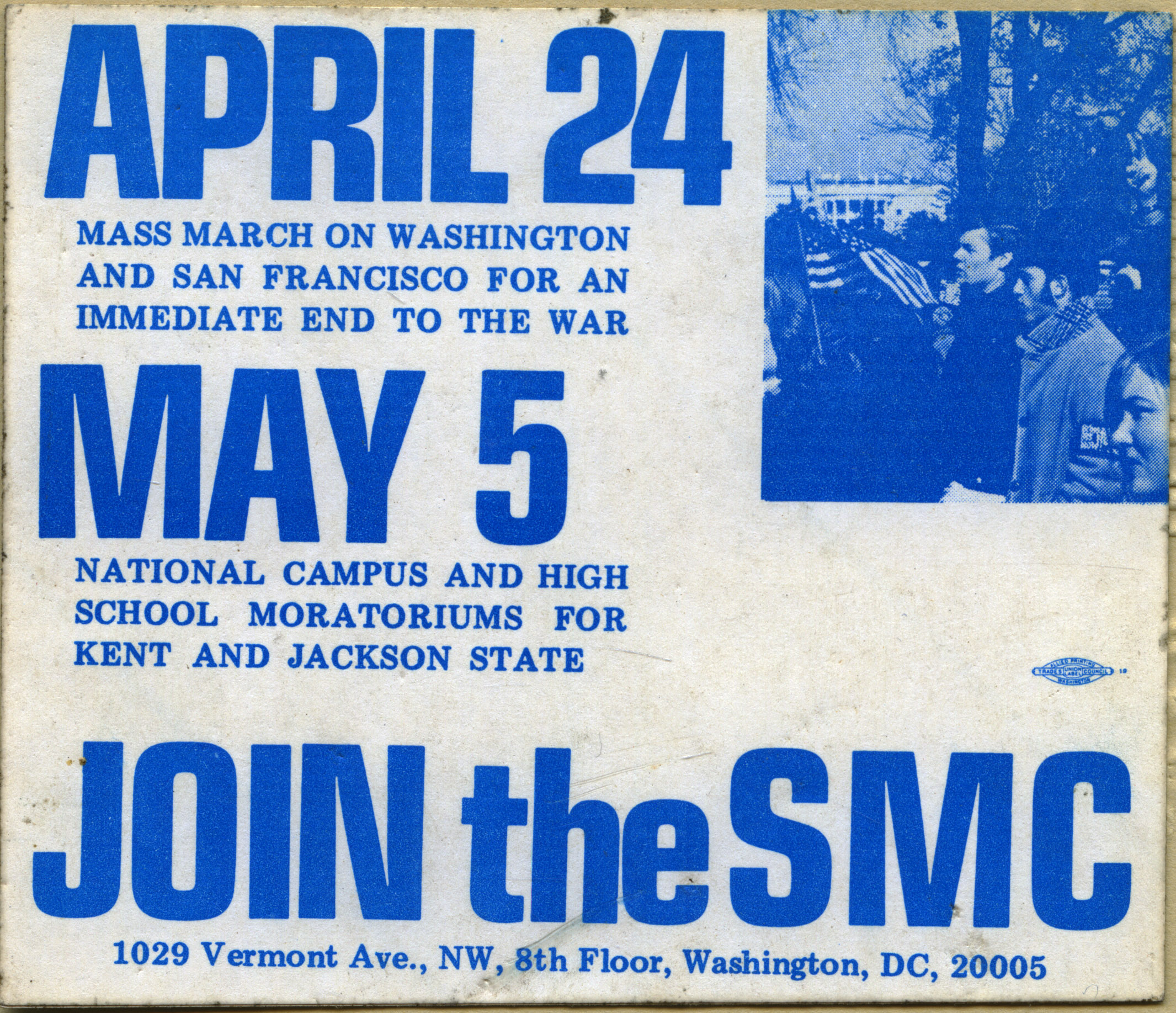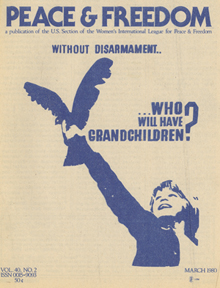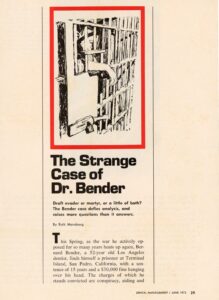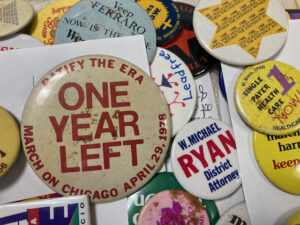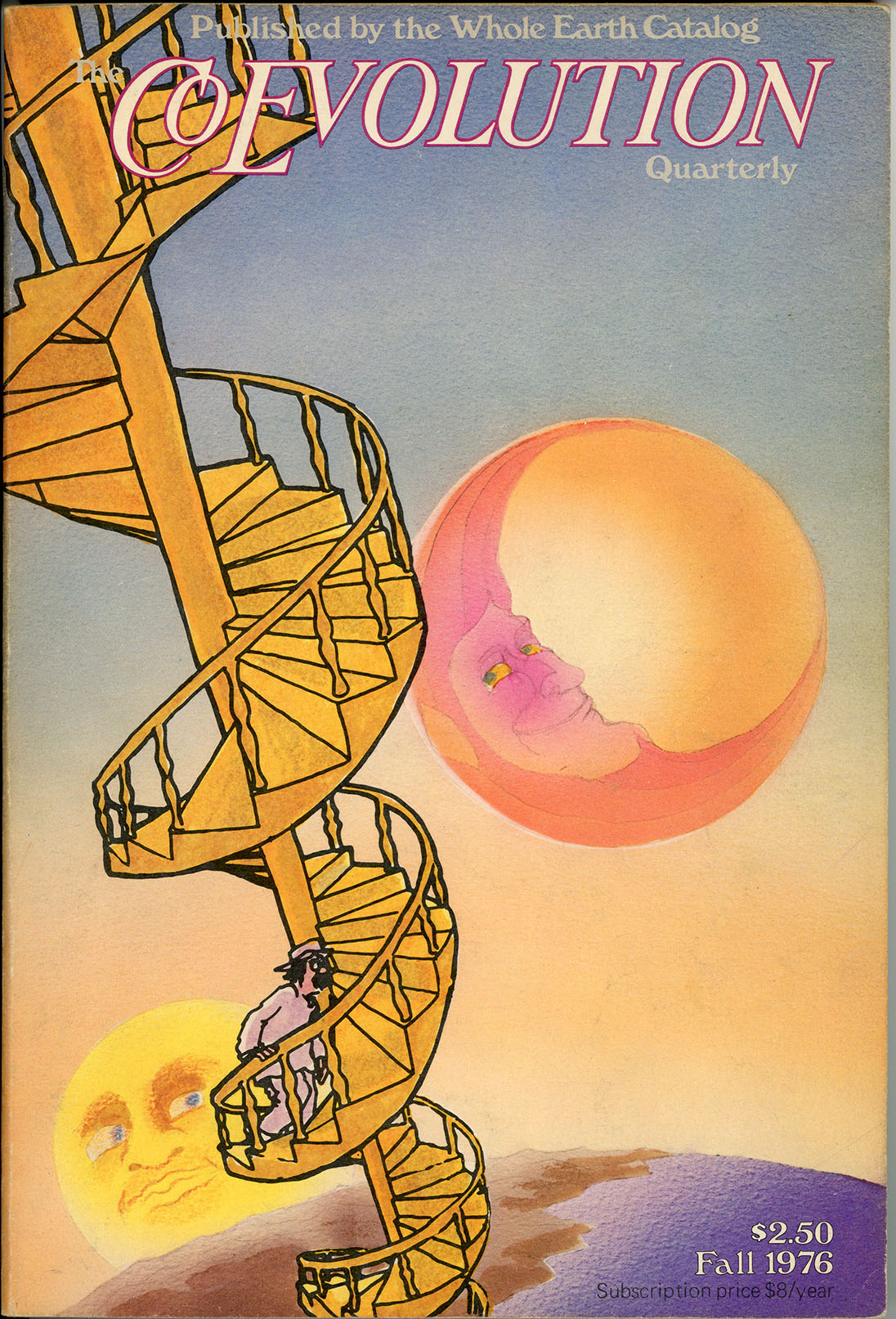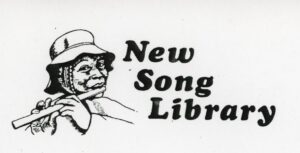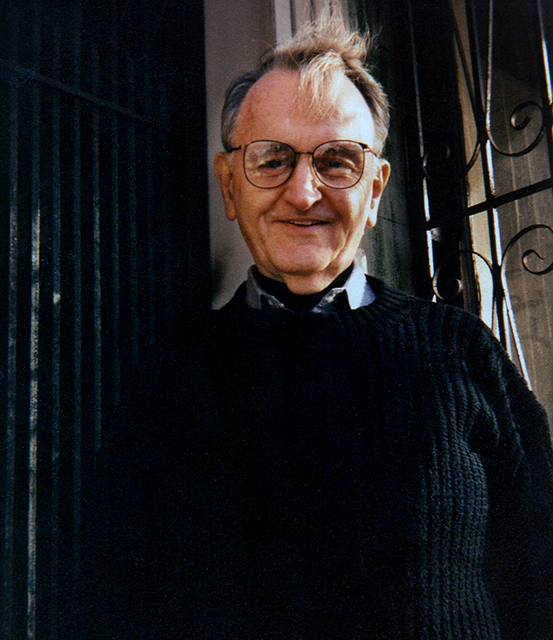Eleanor “Nina” Hathaway Swaim (1938-2015) was a feminist, environmental and antinuclear activist, antiwar organizer, and proponent of women’s collective enterprises globally. She was arrested for the final time just a month before her death, chained to the gates of a pipe yard in Williston, VT, protesting a fracked gas pipeline. Born into a conservative family in Sharon, MA, Swaim was radicalized during the mid-sixties by courses at the Free University on the Lower East Side and during the 1968 occupations at Columbia University, where she was an administrator. She joined the It’s All Right to be a Woman Theater in 1970 and toured the country with them before leaving New York City to work in a GI bookstore near a military base in Massachusetts, helping soldiers protesting the Vietnam War. Learning the printing trade, she moved to Vermont and co-founded the women’s collective press, New Victoria Press, worked as a mediation coordinator for the Vermont Supreme Court, and became a strong force in the antinuclear movement, helping found the Upper Valley Energy Coalition (UVCE), and co-authoring a book with Susan Koen, “A Handbook for Women on the Nuclear Mentality.” She met her husband, Douglas Smith, through UVEC, and the pair worked on numerous antinuclear, environmental, and other grassroots campaigns and protests together, including a project in Mozambique on water access, where Swaim worked as a cooperator with the revolutionary Organization of Mozambican Women. Other international work included picking cotton in Nicaragua, visiting Cuba under siege, and touring Gandhian centers in India to learn practical nonviolence and social change techniques. A practicing Buddhist, Swaim was an avid writer, gardener, beekeeper, and hiker, and in addition to her other causes, spearheaded numerous events related to the natural world, food security, and honeybees.
The Nina Swaim Papers offer an intimate look into the life of an indomitable and inspiring grassroots activist focused on both local Vermont issues and global concerns. Unpublished writings, clippings, and correspondence, as well as photographs, tapes, and scrapbooks reflect her international travels and work, as well as her community and concerns in the antinuclear and environmental movements based out of Vermont. Detailed writings, reflections, short stories, travel notes, and a comprehensive set of journals dating from the late sixties make up a large part of the collection. They are full of the musings of an activist pondering the meaning of women’s consciousness raising and conflict settlement, of worker collectives and other community building, of struggles and misunderstandings between lesbian and straight women, of power in organizations like Clamshell Alliance and the Upper Valley Energy Coalition, of motherhood and aging, and of the relationship between action for social change and spiritual practice.
Gift of Douglas V. Smith, 2021.
